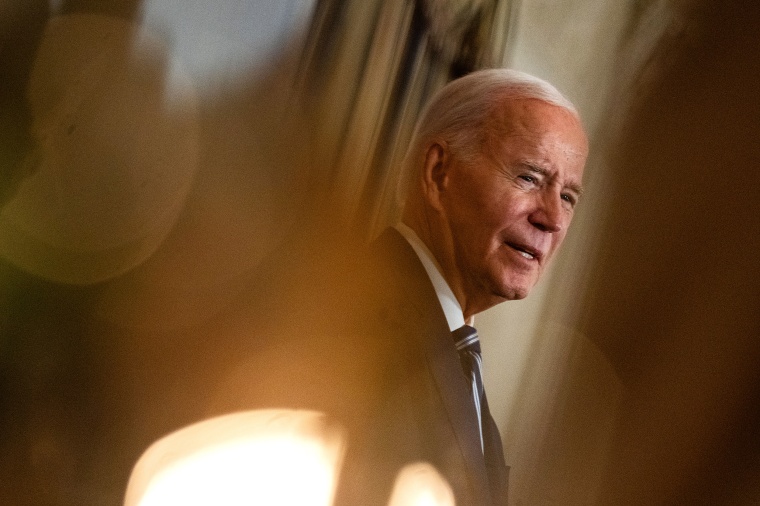The White House announced Monday that President Joe Biden would ban new offshore oil and gas drilling along most of the U.S. coastline.
The order will protect some 625 million acres of ocean along America’s Atlantic and Pacific coasts, the Gulf of Mexico and Alaska’s Bering Sea from “environmental and economic risks and harms,” the White House said in a statement announcing the move.
It is also an attempt to protect Biden’s climate legacy from the energy policy set to be pursued by Republicans and President-elect Donald Trump’s energy policy.
Biden will use an obscure provision of the 1953 Outer Continental Shelf Lands Act (OCSLA), which gives the president the power to indefinitely withdraw unleased lands from the outer continental shelf.
While former President Barack Obama used the act in 2016 to protect 119 million acres of land, Monday’s move is much larger and will be viewed as a significant victory for environmental groups that have long argued further drilling is contradictory to the U.S. government’s stated goal of slashing emissions that lead to climate change.
Last year was the hottest in recorded history.
“Drilling off these coasts could cause irreversible damage to places we hold dear and is unnecessary to meet our nation’s energy needs. It is not worth the risks,” Biden said in a statement.
“As the climate crisis continues to threaten communities across the country and we are transitioning to a clean energy economy, now is the time to protect these coasts for our children and grandchildren,” he added.
Biden’s decision takes the total area of ocean he has protected to 670 million acres — higher than any other president — and could frustrate Trump’s plans to gain an economic boost from doubling down on the increased oil and gas production he oversaw in his first administration.

During his first administration, Trump used an executive order in an attempt to overturn Obama’s decision to invoke OCSLA during the final month of his presidency, but that decision was struck down in the courts. That means it may take an act of Congress to reverse Monday’s announcement by the Biden administration.
The week after he won the 2024 presidential election, Trump named Liberty Energy CEO Chris Wright as his pick to lead the Department of Energy.
Wright has previously written on the need for more fossil fuel production to lift people out of poverty, and in a video posted to his LinkedIn profile in 2023, said that “there is no climate crisis, and we’re not in the midst of an energy transition, either.”
While many of the protected areas have not tended to draw much interest from the energy industry, the Biden administration also said the ban would cover the entire eastern U.S. Atlantic coast and the eastern Gulf of Mexico. Both areas have been of interest to oil companies, although Trump himself moved to prevent drilling in those areas during his first administration.
In 2020, Trump issued a moratorium on drilling in areas where oil and gas exploration received wide opposition from Republicans in Florida and voters in North Carolina.
In many of the areas protected by Monday’s announcement, Biden said, “development that would do little, if anything, to meet the nation’s energy needs.”
In response to the news, Secretary of the Interior Deb Haaland said in a statement that “President Biden’s actions today are part of our work across this Administration to make bold and enduring changes that recognize the impact of oil and gas drilling on our nation’s coastlines.”
“Today, the President is taking action that reflects what states, Tribes and local communities have shared with us — a strong and overwhelming need to support resilient oceans and coastlines by protecting them from unnecessary oil and gas development,” she added.
Citing the lessons learned from the 2010 Deepwater Horizon oil spill — when 134 million gallons of oil spilled into the Gulf of Mexico — Biden said that “we do not need to choose between protecting the environment and growing our economy, or between keeping our ocean healthy, our coastlines resilient, and the food they produce secure and keeping energy prices low. Those are false choices.”



